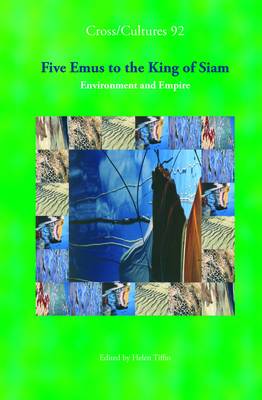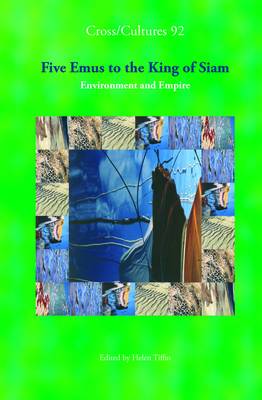
- Retrait gratuit dans votre magasin Club
- 7.000.000 titres dans notre catalogue
- Payer en toute sécurité
- Toujours un magasin près de chez vous
- Retrait gratuit dans votre magasin Club
- 7.000.0000 titres dans notre catalogue
- Payer en toute sécurité
- Toujours un magasin près de chez vous
154,45 €
+ 154 points
Description
Western exploitation of other peoples is inseparable from attitudes and practices relating to other species and the extra-human environment generally. Colonial depredations turn on such terms as 'human', 'savage', 'civilised', 'natural', 'progressive', and on the legitimacies governing apprehension and control of space and landscape. Environmental impacts were reinforced, in patterns of unequal 'exchange', by the transport of animals, plants and peoples throughout the European empires, instigating widespread ecosystem change under unequal power regimes (a harbinger of today's 'globalization').
This book considers these imperial 'exchanges' and charts some contemporary legacies of those inequitable imports and exports, transportations and transmutations. Sheep farming in Australia, transforming the land as it dispossessed the native inhabitants, became a symbol of (new, white) nationhood. The transportation of plants (and animals) into and across the Pacific, even where benign or nostalgic, had widespread environmental effects, despite the hopes of the acclimatisation societies involved, and, by extension, of missionary societies "planting the seeds of Christianity." In the Caribbean, plantation slavery pushed back the "jungle" (itself an imported word) and erased the indigenous occupants - one example of the righteous, biblically justified cultivation of the wilderness. In Australia, artistic depictions of landscape, often driven by romantic and 'gothic' aesthetics, encoded contradictory settler mindsets, and literary representations of colonial Kenya mask the erasure of ecosystems. Chapters on the early twentieth century (in Canada, Kenya, and Queensland) indicate increased awareness of the value of species-preservation, conservation, and disease control. The tension between traditional and 'Euroscientific' attitudes towards conservation is revealed in attitudes towards control of the Ganges, while the urge to resource exploitation has produced critical disequilibrium in Papua New Guinea. Broader concerns centering on ecotourism and ecocriticism are treated in further essays summarising how the dominant West has alienated 'nature' from human beings through commodification in the service of capitalist 'progress'.
This book considers these imperial 'exchanges' and charts some contemporary legacies of those inequitable imports and exports, transportations and transmutations. Sheep farming in Australia, transforming the land as it dispossessed the native inhabitants, became a symbol of (new, white) nationhood. The transportation of plants (and animals) into and across the Pacific, even where benign or nostalgic, had widespread environmental effects, despite the hopes of the acclimatisation societies involved, and, by extension, of missionary societies "planting the seeds of Christianity." In the Caribbean, plantation slavery pushed back the "jungle" (itself an imported word) and erased the indigenous occupants - one example of the righteous, biblically justified cultivation of the wilderness. In Australia, artistic depictions of landscape, often driven by romantic and 'gothic' aesthetics, encoded contradictory settler mindsets, and literary representations of colonial Kenya mask the erasure of ecosystems. Chapters on the early twentieth century (in Canada, Kenya, and Queensland) indicate increased awareness of the value of species-preservation, conservation, and disease control. The tension between traditional and 'Euroscientific' attitudes towards conservation is revealed in attitudes towards control of the Ganges, while the urge to resource exploitation has produced critical disequilibrium in Papua New Guinea. Broader concerns centering on ecotourism and ecocriticism are treated in further essays summarising how the dominant West has alienated 'nature' from human beings through commodification in the service of capitalist 'progress'.
Spécifications
Parties prenantes
- Editeur:
Contenu
- Nombre de pages :
- 288
- Langue:
- Anglais
- Collection :
- Tome:
- n° 92
Caractéristiques
- EAN:
- 9789042022430
- Date de parution :
- 01-01-07
- Format:
- Livre relié
- Format numérique:
- Genaaid
- Dimensions :
- 155 mm x 235 mm
- Poids :
- 603 g

Les avis
Nous publions uniquement les avis qui respectent les conditions requises. Consultez nos conditions pour les avis.





